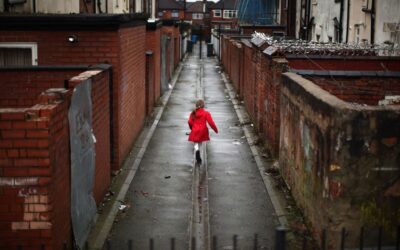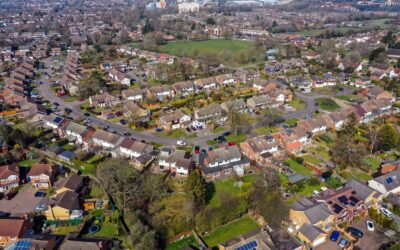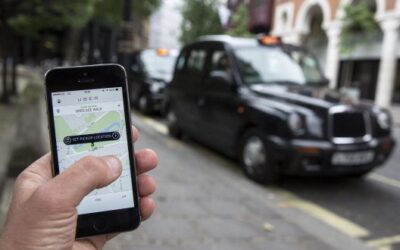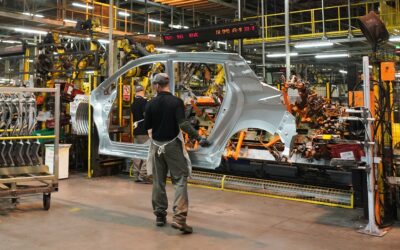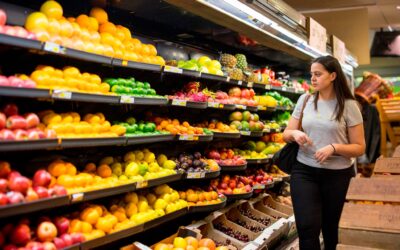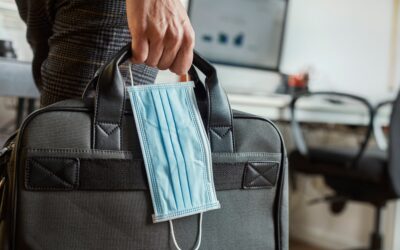Half a million people risk being plunged into deep poverty unless Rishi Sunak makes a temporary increase in Universal Credit permanent, a group of more than 50 organisations has warned.Children’s charities, debt advisors, disability groups and equality campaigners are among those to have signed an open letter to the chancellor, urging him not to cut benefits that are expected to be a lifeline as UK jobs disappear.
It came as Labour accused the chancellor of introducing economic policies which are a throwback “to the worst days of Thatcher”.In April, the government increased the basic universal credit payment by £20 a week to £317 per month, but benefits in the UK remain among the lowest of any wealthy country. The uplift is set to be reversed in April next year, leaving many households unable to cover basic expenses, charities have said.Some 700,000 people will be dragged into poverty, according to the group’s calucations. A further 500,000 who are already on very low incomes are forecast to be dragged into deep poverty unless action is taken. Read moreDeep poverty is classified as 50 per cent below the poverty line, or living on roughly a quarter of median household earnings. The coalition wrote: “Falling incomes and rising costs throughout the pandemic have put families under immense financial pressure, but the £20 uplift has been a lifeline that has enabled many of them to keep their heads above water and has stopped us seeing a marked surge in poverty levels.”
It warned that ending the uplift in April 2021 risks undermining the chancellor’s good work. Modelling by the Joseph Rowntree Foundation, which co-ordinated the letter, indicates that around 16 million people are in households who will lose £1,040 a year, with those on the lowest incomes and families with children being hardest hit. The group added: “At a stroke, 700,000 more people will be pulled into poverty, including 300,000 children, and 500,000 more of those already in poverty will be plunged into deep poverty – more than 50 per cent below the poverty line. “We are therefore urging you to make the uplift permanent and stop families being cut adrift whilst they need help to stay afloat.”
Read moreThe organisations are also calling for the increase to be extended to legacy benefits which have so far been left at their existing levels.
Shadow chancellor Anneliese Dodds said: “The chancellor should have protected jobs with a proper worksharing scheme that incentivised employers to keep more staff on.”Instead, he’s telling British business to start laying people off because no more help is coming.
“This wasn’t by accident, it was by design.
“The chancellor’s sink-or-swim mentality is a throwback to the worst days of (Margaret) Thatcher and, just like in the 1980s, people on the lowest incomes will pay the highest price.”Britain now faces an unemployment crisis, and it’s got Rishi Sunak’s name all over it.”The chancellor acknowledged last week that many families will see job losses over the coming months, and those whose jobs are protected through the Job Support Scheme will see their incomes fall.
The Independent Articles
BMW and others buying leather causing rapid destruction of forest, home to isolated tribe and rare wildlife, research finds
BMW is also among car giants accused of buying leather from land in the Chaco region of Paraguay, which is being illegally razed for cattle ranching.
The region is losing forest faster than anywhere else on earth as the area is converted to animal pasture to meet global demand for beef and leather, according to researchers.A report by environmental investigation group Earthsight claims slaughterhouses buying cattle from these ranches were found to be selling cow hides to tanneries supplying some of Europe’s biggest car companies.
None of Europe’s 10 largest manufacturers of cars with leather interiors was able to fully trace the origins of the leather it was using, the report said, prompting researchers to say their findings were the “tip of the iceberg”.
Read moreThe report, called Grand Theft Chaco, says cattle ranchers in the Chaco region illegally cleared land inhabited by the Ayoreo Totobiegosode tribe, the only indigenous people living in voluntary isolation anywhere in the Americas outside the Amazon.
The Chaco is also home to hundreds of species of birds, reptiles and mammals, including jaguars, giant anteaters, ocelot and pumas.
Undercover researchers held meetings with tannery bosses, government whistleblowers and indigenous activists, and visited remote ranches and examined records to discover how the forests of the Gran Chaco are being destroyed.
Earthsight estimates land the size of a football pitch was cleared every two minutes last year in the Paraguayan Chaco. Executives at one of Paraguay’s biggest tanneries, which sources cattle from illicitly cleared forest, told the researchers their leather is used by Jaguar Land Rover, including for its Range Rover Evoque series. The report says BMW admitted sourcing hides from two slaughterhouses that also were found to have bought cows from ranches illegally stripping the Totobiegosode forest. Read moreParaguay exports around 50,000 tonnes of partially tanned leather each year, of which almost two-thirds are imported into the EU, where tannery firms sell the finished leather to car manufacturers.
The car industry, which uses up to 60 million cow hides each year, also buys much of its leather from the Brazilian Amazon, where illegal forest clearances are widespread. Raising cattle is the world’s leading cause of tropical forests destruction, and the leather industry lags way behind steps being taken by other sectors involved in deforestation, such as palm oil and cocoa, the document says. Watchdogs including the UN have repeatedly condemned destruction in the past two decades of the Chaco region, which has been inhabited for centuries by semi-nomadic tribes.
In February 2018, clearance of the Totobiegosode was ruled illegal, but between April 2018 and July 2020, more than 2,600 hectares were illegally bulldozed, Earthsight found.
The car company supply chain is just the “very dirty tip of a much larger iceberg” of deforestation and “human rights abuse risks” in leather supply chains, the report warns.
Watch moreSam Lawson, director at Earthsight, said: “No car owner is going to feel comfortable in their plush leather seat knowing that the last forest refuge of an uncontacted tribe was illegally cleared to make it.” Earthsight says EU and UK leaders should force companies to ensure supply chains do not involve such damaging practices.
The report also says influential lobby groups claiming to represent the interests of automotive and other industries have lobbied EU chiefs to halt such legislation and dilute environmental requirements that could be asked of companies.
The EU and UK account for 10 per cent of global deforestation from commodities, importing about €6bn (£5.5bn) of soya, beef, leather and palm oil from land illegally cleared. Italy and Germany are the top two consumers. A Jaguar Land Rover spokesperson said the company took immediate action to investigate, adding that it tracked the supply chain back to the slaughterhouse, and “we have not as yet found evidence to verify Earthsight’s claim that the individual ranch has been illegally cleared, nor that its hides are in our supply chain.
“We continue our drive for further transparency and, in this case, the leather supplier in Europe verifies with each raw material supplier that no rural property that directly supplies it is involved in illegal deforestation.
Watch more“All Paraguayan companies selling hide to the leather supplier are members of the Paraguayan round table of sustainable beef and are committed to upholding the best environmental practices, as well as respecting Paraguay’s strict legislation to protect its natural resources.” A BMW spokeswoman said the company planned to drop raw leather goods from South America in the medium term, adding: “The tanneries used by our supplier in Paraguay have either been certified as gold-rated by the leather working group or have been secured by the Paraguayan ministry of industry and trade in terms of environmental and social standards, resource efficiency and material traceability. “We have contacted our suppliers and we are not currently aware of any breaches of our environmental and social standards in these supply chains.”
The UK government is currently holding a consultation over a possible new law banning the import of commodities linked to illegal deforestation.
Mortgage approvals rise to highest level since 2007 but first-time buyers struggle to get on property ladder
Mortgage approvals last month jumped to their highest level in 13 years, new figures from the Bank of England show.The housing market has bounced back as buyers go ahead with purchases that were held up during lockdown, which saw some of the slowest months.Lenders approved 84,700 residential mortgages, the most for any month since October 2007. However, the increase only partially offset a drop in approvals between March and June.While borrowers with large deposits have had access to a growing range of cheap mortgage deals, those with less than 25 per cent of the proprty value have been increasingly frozen out of the market.
In total, there have been 418,000 approvals in 2020, compared with 524,000 in the same period in 2019.
Read moreNAEA (National Association of Estate Agents) Propertymark reported this week that about one in eight homes sold in August went for more than the original asking price – marking the highest proportion in nearly five years.
Estate agent Savills forecasts that around a million homes will be sold this year. It raised its estimate by almost 250,000 after a mini-boom in sales after restrictions were eased and the government announced a suspension of stamp duty.
Savills forecasts that the market will favour established homeowners with substantila equity and cash buyers, Savills predicts.Against a backdrop of job loss announcements across several industries, lenders have pulled many low-deposit mortgages in recent months as this is seen as riskier lending.
Transactions are expected to increase to over 1.2 million next year, despite weaker underlying market conditions, the report said.
Savills also set out its expectations for house prices in the coming years.
It predicted that prices across Britain will increase by 4 per cent during 2020, before flattening out across 2021.Some experts have predicted the prospect of rising unemployment and a dwindling number of low deposit mortgages as lenders shy away from “riskier” lending will dampen the market.Samuel Tombs, chief UK economist at Pantheon Macroeconomics, said a recent increase in mortgage rates, particularly for low deposit loans, “will make purchases unaffordable for many first-time buyers”.
He continued: “The outlook for a further drop in employment also will weigh on the housing market, though with home ownership having narrowed to a wealthier segment of the population over the last decade, job losses won’t have as devastating an impact on the market as they did in 2008.”Additional reporting by PA Media
Zero-emissions electric bus service launched between Edinburgh and Dundee
Two British entrepreneurs are on the brink of launching a transportation revolution: an inter-city shuttle using an electric-powered bus.Starting at 5.30am on Thursday morning, a smart new 45-seat coach will depart from Dundee for a 90-minute journey to Edinburgh.Unlike the existing diesel-powered bus and rail links between the cities, the new service – branded Ember – is 100 per cent electric, with zero direct emissions.While electric buses are used for some local journeys in the UK, this is the first time that British cities a long way apart have been linked.The Independent joined a proving run from Dundee with the founders, Keith Bradbury, 38, and Pierce Glennie, 30.Watch moreThey chose Dundee (slogan: one city, many discoveries) because of the council’s existing enthusiasm for electric vehicles – which even include bin lorries.“This is how you get people out of cars,” said Mr Bradbury, as driver Mark Addison accelerated away from the city on the road to Perth.“People have negative perceptions of bus or coach, and we’re here to change those.“Drivers will realise that you can take an electric coach with zero emissions to Edinburgh, you don’t have to pay for parking, and it gives a better prospect for a day out.”With no significant engine noise, conversations can be conducted quietly even while travelling down the M90 at 60mph.The Chinese-made Yutong coach can hold 55 people but has been configured with 45 seats to provide extra comfort. While the coronavirus crisis prevails, it will operate at half capacity.The founders accept the timing is not ideal, given the slump in travel and economic activity. “However,” said Mr Bradbury, “there’s never a bad time to be launching a zero-emission transport business.”As with the UK’s other innovative coach company, Snap, bookings are made online – but drivers are equipped with iPads that will allow them to sell tickets to “walk-up” customers.That option could be critical to the success of the venture, because as well as serving the two cities it also links smaller communities where they can be served without a significant time penalty. So the small town of Inchture, east of Perth, gets a direct link to Edinburgh as well as local services to Kinross and Rosyth.The flat fare for the full 60-mile journey will be £7.50, compared with £20 on Scotrail diesel trains and £18.60 on a Citylink bus.The vehicle itself costs around £360,000, about one-third more than a conventional diesel coach of similar spec. But the savings on fuel are remarkable. Filling up for 200 miles of travel costs around £40 – a quarter of the cost of diesel for the same distance.Mr Glennie said: “Running costs are much lower and we can pass that benefit on to customers.”“It allows you to open up routes that wouldn’t be viable with diesel buses,” said Mr Bradbury.
Electric dream machines: Are they really the future of motoring?Show all 5
Britons face losing their homes when mortgage holiday ends, report warns
Many people could face losing both their job and their home this winter unless the government takes urgent action to reform benefits for homeowners, a think tank has warned.
With mass redundancies predicted as the furlough scheme ends next month, further support is needed to prevent people who become jobless losing the roof over their head, according to a report from the Centre for Policy Studies.It warned that, even with the new Job Support Scheme, large numbers of households will not be able to afford their mortgage repayments if their wages are reduced or they lose their job.
Borrowers have been able to take a mortgage repayment holiday from April but that is set to come to an end next month potentially leaving many households vulnerable just as unemployment is forecast to surge.The CPS’ report, supported by the Joseph Rowntree Foundation, points out that while tenants can apply for housing benefit to cover housing costs, homeowners cannot get help with mortgage repayments.
Read moreThey can only get help with the interest payments on their mortgage and they must wait nine months to qualify. If they take any work at all, the whole amount is withdrawn.To combat this problem, the report calls for urgent changes to the existing Support for Mortgage Interest (SMI) benefit to support low-income homeowners through the pandemic.
The reformed scheme would offer homeowners a grant to cover mortgage payments for the three first three months and a loan in subsequent months.
The nine-month wait for support would be abolished and lenders would be obliged to make people who are at risk of losing their homes aware of this scheme automatically.
To ensure that people do not remain in homes they cannot afford in the long term, the report recommends that SMI should be time-limited for claimants who are able to work and are not receiving a disability-related benefit.
James Heywood, head of welfare and opportunities, at the CPS said: “The Support for Mortgage Interest Scheme is going to be vital for ensuring people losing their jobs do not also lose their homes before they manage to get back to work. The Government needs to act now to make the necessary changes so people can move straight onto SMI when their mortgage holiday runs out or when they become unemployed.
“If they don’t, not only will people be forced out of home ownership into the rented sector, it will also cost the state more to support them through housing benefit.”
Darren Baxter, policy manager at the Joseph Rowntree Foundation, said: “Even before coronavirus hit, a third of homeowners were living in poverty. And as the economic fallout from the pandemic grows, that number is likely to rise. With the deadline for applying for a mortgage holiday rapidly approaching, now is the time for government to take swift action
“Even before coronavirus hit, a third of homeowners were living in poverty. And as the economic fallout from the pandemic grows, that number is likely to rise. With the deadline for applying for a mortgage holiday rapidly approaching, now is the time for government to take swift action
Uber keeps London licence but its legal woes are far from over
Uber securing the right to continue operating in London can be filed under the heading “undeserved victory”. A year after Transport for London (TfL) rejected its application over safety concerns, it was declared a “fit and proper operator” at Westminster magistrates’ court. Its appeal was successful appeal “despite historic failings”.Critics of TfL and London major Sadiq Kahn sought, when the licence was removed, to portray them as indulging in protectionism (of black cabs among others) and of “restraint of trade” by trying to stymie a novel and disruptive service greatly valued by Londoners.
Caesar’s Palace owner in advanced talks to buy British bookmaker William Hill for £2.9bn
The owner of Las Vegas casino Caesar’s Palace is in “advanced talks” to buy British bookmaker William Hill for around £2.9bn.Caesars Entertainment announced the offer of 272p per share would value William Hill at 25 per cent more than Thursday’s closing share price.William Hill’s shares soared on Friday after rumours spread that a takeover was on the way. The bookmaker was also approached by private equity giant Apollo last week.William Hill’s board has indicated that it would be minded to recommend the deal to shareholders, Caesars said.
The casino operator is said to be particularly interested in William Hill’s US bookmaking business which has 170 sites in 13 states.Caesars already owns a 20 per cent stake in William Hill’s US operations, which also have exclusive rights to operate sports betting under the Caesars brand.
Read moreGambling profits are on the rise in the US after a long-standing ban on sports betting was ruled unlawful by the Supreme Court. Campaigners have warned of an increase in the risk of addiction and gambling-related harm.Tom Reeg, chief executive of Caesars, said: “The opportunity to combine our land-based casinos, sports betting and online gaming in the US is a truly exciting prospect.
“William Hill’s sports betting expertise will complement Caesars’ current offering, enabling the combined group to better serve our customers in the fast growing US sports betting and online market.
“We look forward to working with William Hill to support future growth in the US by providing our customers with a superior and comprehensive experience across all areas of gaming, sports betting, and entertainment.”Caesars said it has completed due diligence and would expect any deal to be completed in the second half of 2021.
UK car production plunges 44% as industry reels from effects of pandemic and Brexit
Car production has continued to fall as the industry is hit by the virus crisis, new figures show.Just over 51,000 vehicles rolled off factory lines in August, down by 44 per cent on the same month last year, said the Society of Motor Manufacturers and Traders (SMMT).Efforts to ramp up production have stalled because of the ongoing pandemic, with weak demand in overseas markets compounded by a significant fall in output for UK buyers, said the trade body.The slump is highlighted by an unusually strong August in 2019, when some car plants worked through the customary summer maintenance shutdown period to mitigate the then possible no-deal Brexit in March.Production for UK buyers fell by 58 per cent in the month to just 7,795 units, while exports declined by 41 per cent with 73,443 vehicles produced.Read moreAlmost 85 per cent of all cars built in Britain in August were destined for other countries, underlining the importance to the sector and UK economy, said the SMMT.Car production is down by 40 per cent so far this year, representing a loss of 348,821 units, the figures showed.The SMMT said support for the industry was now “critical” as the UK braces for a second wave of coronavirus.Production losses due to the crisis have cost manufacturers more than £9.5bn so far this year, it was estimated, while at least 13,500 jobs have been lost.Research by the SMMT indicates that one in six automotive jobs are at risk of redundancy when the furlough scheme ends next month.
Mike Hawes, SMMT chief executive, said: “These are increasingly disturbing times for UK car makers and suppliers with the coronavirus crisis weighing heavily on the sector.“Companies are bracing for a second wave with tighter social and business restrictions making the industry’s attempts to restart even more challenging.“The UK industry is fundamentally strong and agile, and the measures announced yesterday by the chancellor are welcome and essential, although we await more details of how they will work for all businesses and crucially large manufacturers.“Moreover, with fewer than 100 days until the Brexit transition period ends, we need urgent agreement of an ambitious free trade deal with our largest market to avoid the second shock of crippling tariffs.”
No-deal Brexit will lead to £1.3 billion a year rise in food and drink tariffs
Supermarket shoppers will face up to £1.3 billion tariff per year on food and drink unless the government secures a free-trade deal with the EU.New analysis from the UK’s leading trade body, The British Retail Consortium (BRC), reveals shoppers will continue to face higher prices for their weekly shop.According to the trade body, these mammoth tariffs can be mitigated if a deal is agreed before Christmas. The report says retailers will have “nowhere to go other than to raise the price of food” while many non-food retailers will face similar “large tariff bills” for EU-sourced products.Watch moreAndrew Opie, director of food and sustainability at the BRC, said: “Unless we negotiate a zero-tariff deal with the EU, the public will face higher prices for their weekly shop.”He added: “This would prevent harm to shoppers, retailers and the wider economy.” The EU is the largest UK trading partner, where four-fifths of the UK’s food imports are sourced.Watch moreThe new tariff schedule will be implemented from 1 January next year if a deal cannot be agreed.The retail body analysed the UK’s new tariff schedule, finding that 85 per cent of foods imported from the EU will face tariffs of more than 5 per cent. Read moreIt is thought that poorer households will be hit hardest as they spend a higher proportion of income on essentials. David Potts, CEO of Morrisons, has warned the government to secure a tariff-free deal to mitigate this rise in the price of groceries.The schedule will see a 48 per cent tariff on minced beef, 16 per cent on cucumbers and 10 per cent on lettuce.Read moreEU goods such as wine from Italy, France and Spain will become £2 more expensive per bottle while cheese will see up to a pound price increase. There will be a 10 per cent tariff on cars made in Europe.The latest monthly retail price index for August revealed fresh food prices increased by 0.2 per cent, while inflation for ambient food rose to 2.8 per cent for the month.Watch moreMr Opie said: “UK consumers have benefited from great value, quality and choice of food thanks to our ability to trade tariff-free with the EU. There is no time to waste, the UK and EU must hammer out a final arrangement as soon as possible.”Watch moreHe added: “Coronavirus is already making life hard for consumers, particularly those on lower incomes, and a no-deal Brexit will have a massive impact on their ability to afford essential goods.”It reported that a “no-deal Brexit would represent a further major shock to the UK economy” with a “major set of changes” to the country’s economic relationship with the EU.
Pay rises ‘plummet’ to lowest levels in a decade
Pay awards have come to a standstill after “plummeting” to their lowest levels since 2009 amid ongoing damage to the economy caused by the coronavirus, a study suggests.Pay reviews over recent months have fallen to zero, according to pay analysts XpertHR.Public sector pay rises were worth more than those in the private sector over the last year, with a median figure of 2.5 per cent, compared to 2.2 per cent in the private sector, the report said.

